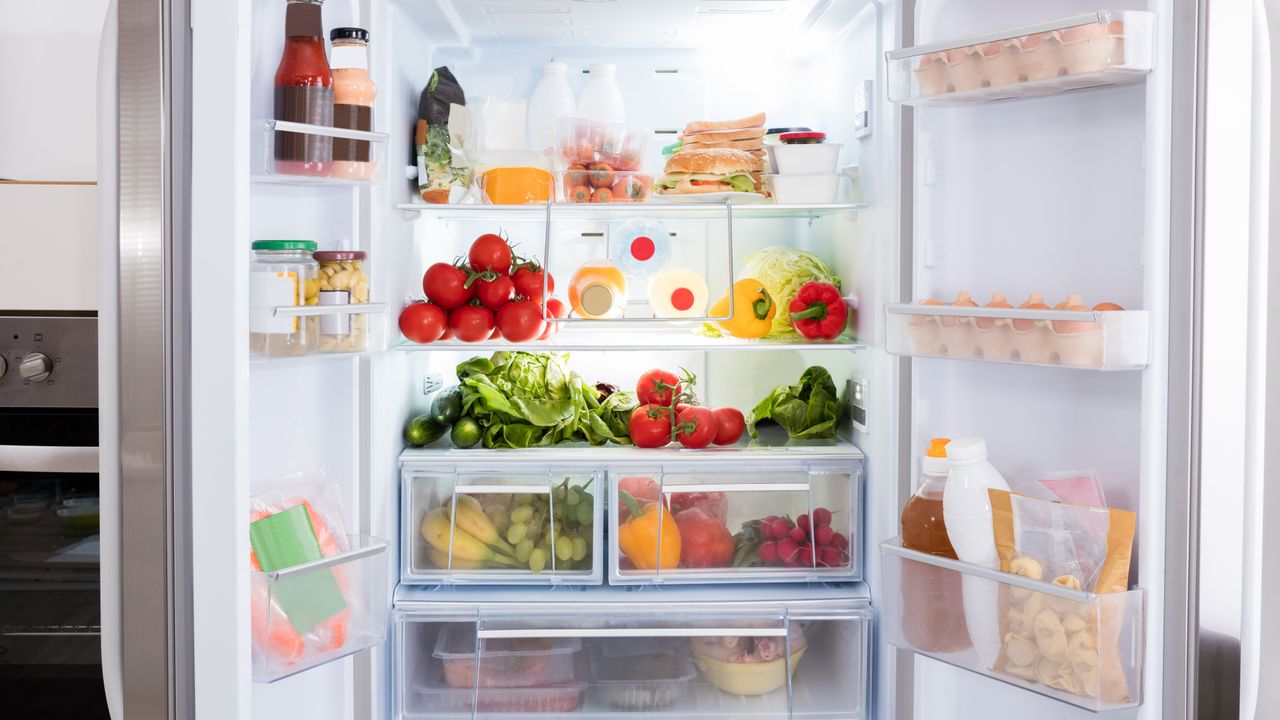Lifestyle
Streamline Your Fridge: Reduce Waste and Enhance Efficiency

Many individuals overlook the importance of fridge organization, focusing primarily on storing groceries and retrieving them when needed. However, recent insights reveal that removing excess packaging from food items can significantly enhance the efficiency of your refrigerator while contributing to a reduction in food waste.
Social media platforms, particularly TikTok, have popularized the concept of “fridgescaping,” where users showcase meticulously organized refrigerators. This trend elevates fridge aesthetics, but it also sheds light on practical benefits that come from thoughtful organization. Experts emphasize that decluttering your fridge can lead to improved airflow, better visibility of items, and ultimately, less food waste.
Benefits of Removing Excess Packaging
Matthew Glynn, the Product Marketing Manager at Hisense, highlights the advantages of eliminating bulky packaging. He notes, “By eliminating bulky or redundant packaging, you’re instantly freeing up valuable room. This not only helps to prevent overfilling, which can restrict airflow and reduce cooling efficiency, but it also allows for better visibility of your items.” A well-organized fridge makes it easier to see what food is available, reducing the likelihood of items being forgotten and subsequently discarded.
In addition to reducing waste, Glynn points out that removing secondary packaging can promote better hygiene. “Materials such as cardboard can harbour contaminants or absorb moisture,” he explains. Transferring perishable goods to airtight containers not only preserves their quality but also minimizes messes that could require extensive cleaning.
Darren Watts, a kitchen expert at Wren Kitchens, advises that some foods, such as tomatoes, onions, and garlic, are better stored outside the refrigerator. “These items keep better in a cool, dark larder or pantry cupboard,” he explains, noting that this practice maximizes fridge space and preserves the flavor and texture of these ingredients.
Strategies for Sustainable Fridge Organization
Implementing these organizational tips can enhance both the lifespan of your groceries and the energy efficiency of your appliance. Glynn emphasizes that thoughtful repackaging, combined with effective fridge organization, can lead to significant benefits. Utilizing stackable containers can keep your food fresh and protected once external packaging has been removed.
For those looking to improve their kitchen organization, Watts suggests expanding efforts beyond the fridge. “Use stackable storage containers in cupboards to decant dry goods like pasta, rice, and cereals,” he recommends. This not only clears clutter but also aids in tracking quantities, reducing packaging waste.
As consumers increasingly seek to minimize food waste, many are adopting meal planning strategies based on the expiry dates of their groceries. This approach has proven effective for many individuals in managing their food inventory more efficiently. By prioritizing fridge organization, people can better utilize space and ensure that food items are consumed before they spoil.
In conclusion, while the aesthetics of a well-organized fridge can be appealing, the practical benefits of removing excess packaging and optimizing space are substantial. By following the advice of experts like Matthew Glynn and Darren Watts, individuals can enhance both their kitchen’s efficiency and their overall food management practices.
-

 Lifestyle4 months ago
Lifestyle4 months agoLibraries Challenge Rising E-Book Costs Amid Growing Demand
-

 Sports3 months ago
Sports3 months agoTyreek Hill Responds to Tua Tagovailoa’s Comments on Team Dynamics
-

 Sports3 months ago
Sports3 months agoLiverpool Secures Agreement to Sign Young Striker Will Wright
-

 Lifestyle3 months ago
Lifestyle3 months agoSave Your Split Tomatoes: Expert Tips for Gardeners
-

 Lifestyle3 months ago
Lifestyle3 months agoPrincess Beatrice’s Daughter Athena Joins Siblings at London Parade
-

 World3 months ago
World3 months agoWinter Storms Lash New South Wales with Snow, Flood Risks
-

 Science4 months ago
Science4 months agoTrump Administration Moves to Repeal Key Climate Regulation
-

 Science3 months ago
Science3 months agoSan Francisco Hosts Unique Contest to Identify “Performative Males”
-

 Business4 months ago
Business4 months agoSoFi Technologies Shares Slip 2% Following Insider Stock Sale
-

 Science4 months ago
Science4 months agoNew Tool Reveals Link Between Horse Coat Condition and Parasites
-

 Sports3 months ago
Sports3 months agoElon Musk Sculpture Travels From Utah to Yosemite National Park
-

 Science4 months ago
Science4 months agoNew Study Confirms Humans Transported Stonehenge Bluestones









